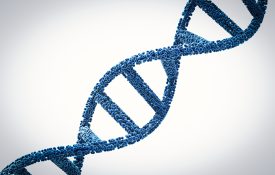-
Hey GM, Denial is Not the Answer
TIME: When it comes to delivering bad news, the learning curve for most corporations is like the terrain of Kansas—which is to say no curve at all. Take General Motors. It was in 2001 that GM got its first inkling that problems with its ignition switches could cause a car to shut off while in operation—never a good thing. More evidence surfaced in 2005 and beyond, but it was only this year that the company came clean and recalled 2.6 million vehicles—getting deservedly blowtorched not just for their design failures but for their slipperiness. So not exactly nimble. GM is not alone.
-
Gratitude is good for your wealth
CBS News: Market pundits have long lamented the devastating impact that impatience has on your wealth. Whether it's chasing the performance of last year's hot funds, overspending on credit cards, or simply going for the immediate gratification that comes from spending today what you should have saved for tomorrow, literally hundreds of academic research papers say the same thing. The impatient individual costs himself a fortune. On the other hand, investors who have the personal discipline to start saving young and leave their investments alone, end up rich. But what makes one investor patient and another impatient? The old school answer was willpower.
-
Little Kids Quickly Learn to Judge a Face
National Geographic: We've all looked at someone's face and thought: "Now there's someone I can really trust." Or perhaps: "I wouldn't trust him with a wooden nickel." To the surprise of social scientists, children as young as three make the same sort of judgments based on nothing more than facial features. That's what researchers found in a new study published in Psychological Science. Mahzarin Banaji, Emily Cogsdill, and Elizabeth Spelke of Harvard andAlexander Todorov of Princeton showed pairs of faces to 99 adults and 141 children ages three to 10. Each pair of faces was designed to connect to one of three adjectives: trustworthy, dominant, or competent.
-
Oxytocin Boosts Dishonesty
The Scientist: The hormone oxytocin is usually associated with positive traits like trust, cooperation, and empathy, but scientists have now found that it can make people more dishonest when their lies serve the interests of their group. “This is the best evidence yet that oxytocin is not the ‘moral molecule,’” said Carsten de Dreu from the University of Amsterdam, who co-led the study, which was published today (March 31) in PNAS. “It doesn’t make people more moral or immoral.
-

Exploring the Genetics of “I’ll Do It Tomorrow”
Procrastination and impulsivity are genetically linked, suggesting that the two traits stem from similar evolutionary origins related to our ability to pursue and juggle goals.
-
Life Is Short, Proust Is Long
The New Yorker: Of all the forms of entertainment, reading is the most laborious. Doing the voices of fictional characters in your head is hard. Remembering their names is also hard. Prolonged sitting, we are told, is as bad for us as smoking. Reading is abysmally sedentary. All motion is confined to the eyes, and there the mechanics are ungainly. The human retina is a sensor that is weakest at its edges. Only at its very center, in a region called the fovea, do we see with sufficient acuity to tell individual letters apart. The fovea is small, just wide enough to encompass eight characters. When we read, we are peering through this pinhole. The analogy is with a blinkered horse. ...

